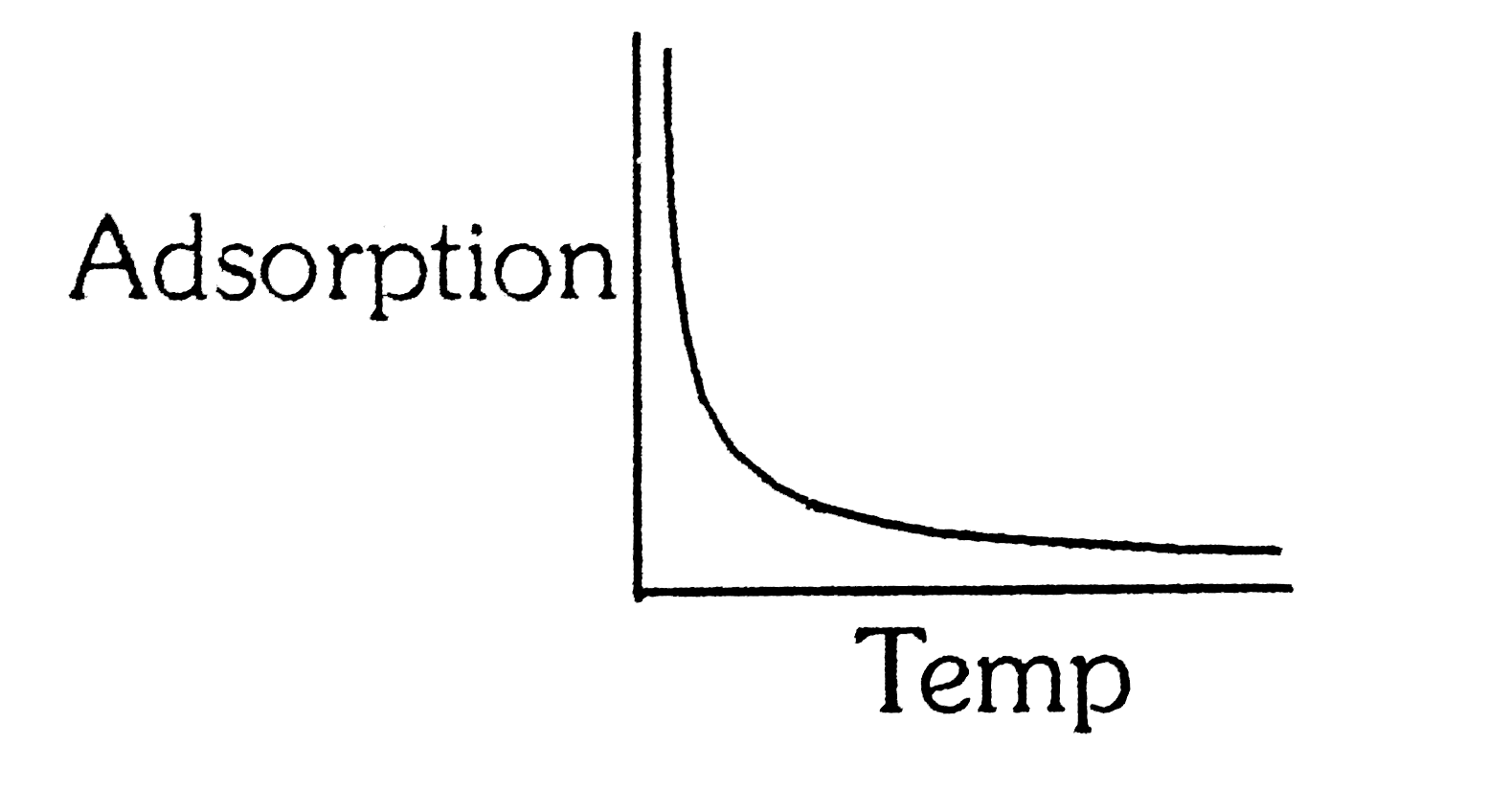Adsorption is exothermic. True/False
The correct Answer is:T
Step-by-Step Solution:
1. Understanding Adsorption: Adsorption is a surface phenomenon where particles from a gas or liquid adhere to the surface of a solid or liquid (known as the adsorbent). This process is distinct from absorption, where a substance is taken up into the volume of another.
2. Energy Changes During Adsorption: When particles adhere to the surface of an adsorbent, the residual forces on the surface of the adsorbent decrease. This reduction in forces leads to a decrease in surface energy.
3. Heat Release: The decrease in surface energy during adsorption results in the release of energy in the form of heat. This is a key characteristic of exothermic processes, where energy is released to the surroundings.
4. Entropy Considerations: During adsorption, the randomness or disorder (entropy) of the system decreases because the adsorbate particles become more ordered when they adhere to the surface. This results in a negative change in entropy (ΔS < 0).
5. Gibbs Free Energy: For a process to be spontaneous, the change in Gibbs free energy (ΔG) must be negative. The relationship between ΔG, ΔH (enthalpy change), and ΔS is given by the equation:
ΔG=ΔH−TΔS
Since ΔS is negative, for ΔG to remain negative, ΔH must also be negative, indicating that the process is exothermic.
6. Conclusion: Based on the above points, we can conclude that adsorption is indeed an exothermic process. Therefore, the statement "Adsorption is exothermic" is True.
---
ΔG=ΔH−TΔS
Since ΔS is negative, for ΔG to remain negative, ΔH must also be negative, indicating that the process is exothermic.
Topper's Solved these Questions
- SURFACE CHEMISTRYBOOK - CENGAGE CHEMISTRY ENGLISHCHAPTER - SURFACE CHEMISTRYEXERCISE - Archives Multiple Correct
3 Videos
- SURFACE CHEMISTRYBOOK - CENGAGE CHEMISTRY ENGLISHCHAPTER - SURFACE CHEMISTRYEXERCISE - Archives Single Correct
6 Videos
- SURFACE CHEMISTRYBOOK - CENGAGE CHEMISTRY ENGLISHCHAPTER - SURFACE CHEMISTRYEXERCISE - Exercises Fill In The Blanks
37 Videos
- SOLUTIONSBOOK - CENGAGE CHEMISTRY ENGLISHCHAPTER - SOLUTIONSEXERCISE - Ex 2.3 (Objective)
9 Videos
- SYNTHETIC AND NATURAL POLYMERSBOOK - CENGAGE CHEMISTRY ENGLISHCHAPTER - SYNTHETIC AND NATURAL POLYMERSEXERCISE - Exercises Assertion Reasoning
10 Videos
Similar Questions
Aluminothermic reaction is exothermic. True/False.
View SolutionAssertion: For Adsorption ΔG,ΔH,ΔS all have -ve values.
Reason: Adsorption is a exothermic process in which randomness decreases due to force of attraction between adsorbent and adsorbate.
View SolutionWhich one of the following statements is wrong?
a. Physical adsorption of gas directly related to its critical temperature.
b. Chemical adsorption decreases regularly as the temperature is increased.
c. Adsorption is an exothermic process.
d. A solid with a rough surface is a better adsorbent than the same solid with a smooth surface.
View SolutionGenerally Adsorption is an endothermic process. true/false
View SolutionAssertion :- The graphical representation of physical adsorption with temp is

Reason :- This is weak adsorption & adsorption is exothermic process.
View SolutionWhy is adsorption always exothermic ?
View SolutionWhy is adsorption always exothermic ?
View SolutionWhy is adsorption always exothermic ?
View SolutionWhy is adsorption always exothermic ?
View SolutionDecomposition of Silver chloride is an exothermic reaction. True/False
View Solution
